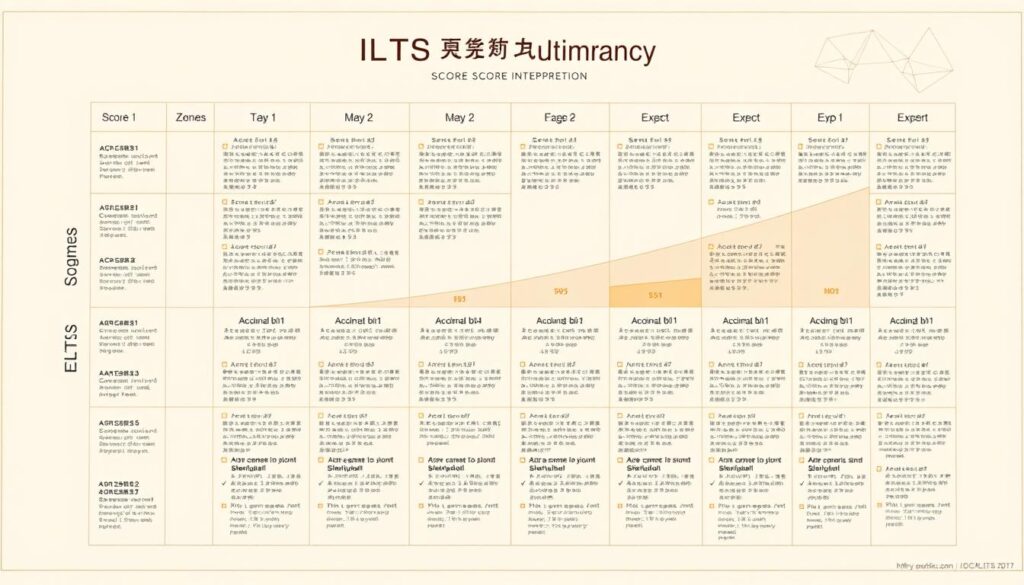Welcome to your comprehensive guide to IDP IELTS, a cornerstone for individuals seeking to prove their English language proficiency. The IELTS, or International English Language Testing System, is a globally recognized test designed to assess your listening, reading, writing, and speaking skills. Whether you’re aiming for university admissions, immigration, or professional opportunities, understanding how to take IELTS and excel in this assessment is crucial.
Developed and administered by IDP Education in partnership with Cambridge Assessment English and the British Council, the IELTS is trusted by over 12,000 organizations worldwide. This includes universities, employers, and governments across the globe. The test is scored on a scale from 0 to 9, with higher scores opening doors to international opportunities. For instance, many universities in the United States require a minimum IELTS band score of 6.5 for admission. Similarly, countries like Canada, Australia, and the UK have specific IELTS requirements for visas and academic programs.
Key Takeaways
- IDP IELTS is a globally recognized test for assessing English language skills.
- The test evaluates listening, reading, writing, and speaking abilities on a scale of 0 to 9.
- A minimum score of 6.5 is often required for university admissions in the U.S.
- Over 12,000 organizations worldwide trust and accept IELTS scores.
- Understanding how to take IELTS and prepare effectively is essential for success.
Whether you’re considering studying abroad, immigrating, or advancing your career, the IELTS exam is a critical step in your journey. For more detailed information on preparing for the IELTS and achieving your desired score, visit this resource to explore study materials and expert tips.
Understanding IELTS and Its Global Importance
The IELTS test plays a vital role in enabling individuals to move across borders for education, work, and migration. It serves as a standardized measure of language proficiency, helping governments, universities, and employers assess candidates’ English skills effectively.
The Role of IELTS in International Mobility
A high score in the IELTS test is often a key motivator for test-takers, as it unlocks opportunities worldwide. For instance, universities in the UK and employers in Canada rely on IELTS results to ensure candidates meet their language requirements.
Recognition by Governments, Universities, and Employers
| Country | Required Score | Purpose |
|---|---|---|
| Canada | 6.0 | Immigration |
| UK | 6.5 | University Admission |
| Australia | 5.5 | Student Visa |
As shown in the table, IELTS scores are crucial for various purposes across different countries. The test upholds stringent proficiency standards, making it a trusted tool for evaluating English skills globally.
What is IDP IELTS?
IDP IELTS refers to the administration of the IELTS exam by IDP Education, a trusted partner in English language testing. IDP works alongside Cambridge Assessment English and the British Council to ensure the test maintains high standards and consistent protocols globally.
An Overview of IDP’s Involvement in IELTS
IDP Education plays a crucial role in delivering the IELTS test worldwide. They handle test administration, ensuring the exam is available in numerous locations, making it accessible to a broad audience. This collaboration ensures that the test remains a reliable measure of English proficiency.
Partnership with Cambridge Assessment English and the British Council
The partnership between IDP, Cambridge Assessment English, and the British Council strengthens the IELTS framework. This collaboration ensures the test is robust, fair, and consistently administered across different countries, maintaining its credibility as a global standard for English assessment.
The IELTS test is divided into two main categories: IELTS Academic and IELTS General Training. The Academic version is designed for those seeking higher education or professional registration, while the General Training is more suited for immigration and work purposes. This dual focus ensures that the test caters to both academic and general English needs, providing a comprehensive evaluation of a candidate’s language skills.
The rigorous evaluation system behind English language testing ensures that both formats maintain high standards. For instance, the Academic test includes complex reading materials and academic writing tasks, while the General Training test focuses on everyday situations and workplace language. This distinction ensures that candidates are assessed according to their specific goals, whether academic or professional.
These partnerships promote integrity and credibility in the exam process. For example, the consistent test format and evaluation criteria ensure that all candidates are assessed fairly, regardless of their location. Additionally, the involvement of multiple organizations brings diverse expertise, further enhancing the test’s reliability and acceptance worldwide.
Exploring the Different IELTS Test Formats
IELTS offers various test formats to cater to different needs and goals. Whether you’re aiming for academic pursuits or professional opportunities, understanding these formats is key to choosing the right one for your journey.
IELTS Academic vs. General Training
The IELTS Academic test is designed for individuals seeking higher education or professional registration in English-speaking countries. It features complex reading materials and academic writing tasks, making it ideal for those planning to study abroad or pursue professional careers. On the other hand, the General Training test focuses on everyday language situations, making it suitable for immigration and work purposes.
Computer-Based vs. Paper-Based Testing
IELTS now offers both computer-based and paper-based formats. The computer-based test provides faster results, typically within 3-5 business days, while the paper-based test results take around 13 days. Both formats include a face-to-face speaking test with an examiner, ensuring a consistent assessment experience.
Test environments are controlled and use up-to-date technology to ensure fairness. Candidates can choose the format that best suits their preferences, whether they prefer typing their answers on a computer or writing them by hand.
IELTS for Life Skills and Other Variants
IELTS for Life Skills is a Secure English Language Test (SELT) designed for visa applications that require proof of speaking and listening abilities. This test is crucial for those applying for visas such as British citizenship, family visas, or work visas in the UK.
In summary, IELTS provides a range of formats to meet diverse needs. Whether you opt for the Academic, General Training, or Life Skills test, each format is designed to assess your English proficiency accurately and fairly.
In-Center Testing Advantages in the United States
Taking the IELTS test at an official in-center location in the United States offers several advantages. These centers provide a professional and controlled environment, ensuring that test takers can perform at their best. With reliable internet, updated technology, and quiet spaces, the experience is both efficient and client-centered.
Features of IELTS USA In-Center Testing
The in-center testing format is designed to support test takers in every way. High-quality technology and supportive staff create a stress-free environment. Quiet testing areas minimize distractions, allowing candidates to focus on their performance. Additionally, the consistent test format and evaluation criteria ensure fair assessment for all participants.
Booking Your Test and Finding a Convenient Location
Choosing the right IELTS center is easy with numerous locations across the USA. Test takers can select centers that match their schedule and preferred format. The in-person speaking assessments with human examiners add a personal touch, ensuring accurate evaluation of speaking skills. Every section of the test is managed to ensure clear communication, making the process smooth and stress-free for all candidates.
Essential Preparation Strategies for IELTS Success
Mastering the IELTS exam requires more than just studying—it’s about building a strategic approach to enhance your language skills and confidence. Whether you’re aiming for academic or professional goals, a well-structured plan is key to achieving success.
Developing Your Listening, Reading, Writing, and Speaking Skills
To excel in the IELTS, focus on each of the four modules:
- Listening: Practice with podcasts and news broadcasts to get used to different accents and speeds.
- Reading: Regularly read academic texts and newspapers to improve your comprehension.
- Writing: Practice writing essays and reports to enhance your clarity and structure.
- Speaking: Engage in conversations with native speakers to boost your fluency.
Consistent training in these areas will help you feel more confident on test day.
Utilizing Practice Materials and Study Plans
A well-tailored study plan is crucial for effective preparation. Allocate short, focused sessions—just 30 minutes a day can make a big difference. Use resources like the IDP IELTS app for practice tests and tips to guide your study routine.
Incorporate real-life English practice by watching movies, listening to music, or speaking with friends. This balance of study and practical use will not only improve your test scores but also enhance your overall English language confidence.
Understanding IELTS Scores and Their Impact
Your IELTS score is a key factor in unlocking opportunities for education, work, and migration. It serves as proof of your English proficiency, helping you meet the requirements of universities, employers, and immigration authorities.
Interpreting Band Scores for Academic and Professional Goals
IELTS band scores range from 0 to 9, with half-scores possible. Each band represents a different level of English proficiency. For example:
- Band 9: Expert user with full command of the language.
- Band 7: Good user who handles complex language well.
- Band 5: Modest user with partial command.
Understanding your score helps you know where you stand and what you need to improve.
| Country | Required Score | Purpose |
|---|---|---|
| USA | 7.0 | University Admission |
| Canada | 6.5 | Immigration |
| UK | 6.0 | Work Visa |
As shown, different countries and institutions have specific score requirements. Achieving a high score can open doors to top universities and job opportunities.
Each year, over 1.5 million test-takers worldwide aim for higher scores to secure their desired opportunities. With the right preparation and understanding of the scoring system, you can achieve your goals and unlock new possibilities.
Opportunities Through IELTS: Education, Work, and Migration
IELTS opens doors to a world of opportunities, enabling individuals to pursue higher education, secure professional registrations, and meet immigration requirements worldwide. A strong IELTS score is your key to unlocking these pathways.
Pathways to Higher Education and University Admissions
Universities in the United States, Canada, and the UK often require IELTS scores for admission. For instance, many U.S. universities require a minimum score of 7.0 for undergraduate programs, while Canadian universities may ask for 6.5. This ensures that international students meet the necessary English proficiency standards. Over 12,500 organizations globally, including top universities, accept IELTS scores, making it a crucial step for academic aspirations.
Meeting Immigration and Professional Registration Requirements
Immigration authorities worldwide rely on IELTS as a trusted language proficiency test. In Canada, a score of 6.5 is often required for immigration, while the UK may require 6.0 for work visas. Beyond immigration, professional bodies in healthcare, engineering, and law use IELTS scores for registration. Achieving a high score enhances career prospects and global mobility.
An excellent IELTS score offers long-term benefits, from accessing top universities to advancing your career. It’s not just a test; it’s your gateway to global opportunities.
Conclusion
In conclusion, the IELTS test is a powerful tool for unlocking global opportunities, whether you’re pursuing education, career, or immigration goals. Recognized by over 12,000 organizations worldwide, including universities and immigration authorities in countries like New Zealand, it serves as a trusted proof of English language proficiency.
Achieving a strong IELTS score provides undeniable evidence of your ability to communicate effectively in English. This credential can open doors to top universities, professional registrations, and immigration pathways. Whether you’re aiming to study in the U.S., work in Canada, or settle in Australia, a high IELTS score is often a critical requirement.
Now that you’ve explored the ins and outs of the IELTS exam, it’s time to take action. Register for the test, dive into preparation, and let your English skills shine. Remember, a great IELTS score is more than just a number—it’s your gateway to a world of possibilities.
FAQ
How does the IELTS General Training test differ from the Academic version?
The IELTS General Training test is designed for individuals seeking work opportunities, immigration, or secondary education. It focuses on practical English skills for everyday situations. In contrast, the Academic test is for higher education or professional registration, emphasizing academic language proficiency.
What is the format of the IELTS test?
The IELTS test consists of four sections: Listening, Reading, Writing, and Speaking. The Listening and Speaking sections are the same for both Academic and General Training tests, while the Reading and Writing sections differ based on the test type.
Can I take the IELTS test on a computer?
Yes, IDP IELTS offers a computer-based test option. This format is faster, with results available within 3-5 business days. However, the content and scoring remain the same as the paper-based test.
How long does it take to receive IELTS test results?
For the paper-based test, results are typically available 13 days after the test date. For the computer-based test, results are ready within 3-5 business days. You can view your results online or collect a hard copy from the test center.
What is the minimum IELTS score required for immigration?
The required IELTS score varies by country and immigration program. For example, for New Zealand immigration, a band score of 6.5 or higher is often needed. It’s best to check the specific requirements of your destination country.
How can I prepare effectively for the IELTS test?
Start by understanding the test format and focus on improving your Listening, Reading, Writing, and Speaking skills. Use official practice materials, join preparation classes, and set a study plan to track your progress.
Is the IELTS test accepted for university admissions in the United States?
Yes, many universities in the U.S. accept IELTS scores as proof of English proficiency for international students. However, check with your chosen university for specific requirements, as some may prefer other English tests.
Can I retake the IELTS test if I’m not satisfied with my score?
Absolutely! There’s no restriction on retaking the test. Many test takers retake the test to achieve higher scores for their academic or professional goals. Ensure you prepare thoroughly before re-taking the test.
How do I book an IELTS test date?
Visit the official IDP IELTS website, choose your preferred test date and location, and complete the registration process online. Make sure to upload the required documents and pay the test fee to confirm your booking.
What are the benefits of taking the IELTS test?
The IELTS test opens doors to higher education, work opportunities, and immigration in English-speaking countries. It’s widely recognized by universities, employers, and immigration authorities worldwide, making it a valuable credential for international opportunities.









